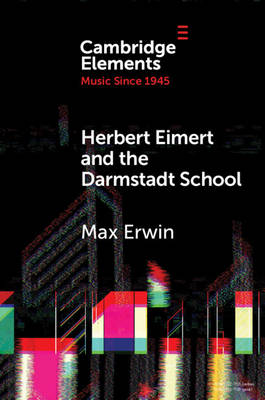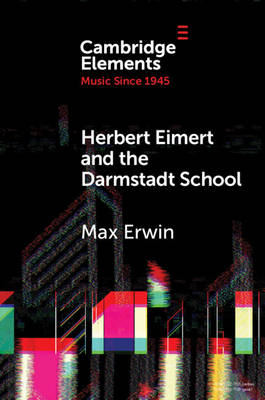
- Afhalen na 1 uur in een winkel met voorraad
- Gratis thuislevering in België vanaf € 30
- Ruim aanbod met 7 miljoen producten
- Afhalen na 1 uur in een winkel met voorraad
- Gratis thuislevering in België vanaf € 30
- Ruim aanbod met 7 miljoen producten
Zoeken
€ 31,95
+ 63 punten
Omschrijving
After 1951, the discourse surrounding both the Darmstadt courses in particular and European New Music more broadly shifted away from a dodecaphonic vocabulary in favour of concepts such as 'punctual music', 'post-Webern music', and 'static music', all collected under the newly-christened unity of the Darmstadt School. This study proposes a genealogy of the Darmstadt School through the institutional influence and writings of Herbert Eimert. It demonstrates that Eimert's understanding of music history - whereby technical procedures are universalised as the acme of historical progress - was adopted as the institutional discourse of New Music in Europe, and remains central to both textbook and critical scholarly accounts which attempt to make sense of the avant-garde after World War II.
Specificaties
Betrokkenen
- Auteur(s):
- Uitgeverij:
Inhoud
- Aantal bladzijden:
- 75
- Taal:
- Engels
- Reeks:
Eigenschappen
- Productcode (EAN):
- 9781108799713
- Verschijningsdatum:
- 3/12/2020
- Uitvoering:
- Paperback
- Formaat:
- Trade paperback (VS)
- Afmetingen:
- 152 mm x 229 mm
- Gewicht:
- 104 g

Alleen bij Standaard Boekhandel
+ 63 punten op je klantenkaart van Standaard Boekhandel
Beoordelingen
We publiceren alleen reviews die voldoen aan de voorwaarden voor reviews. Bekijk onze voorwaarden voor reviews.











